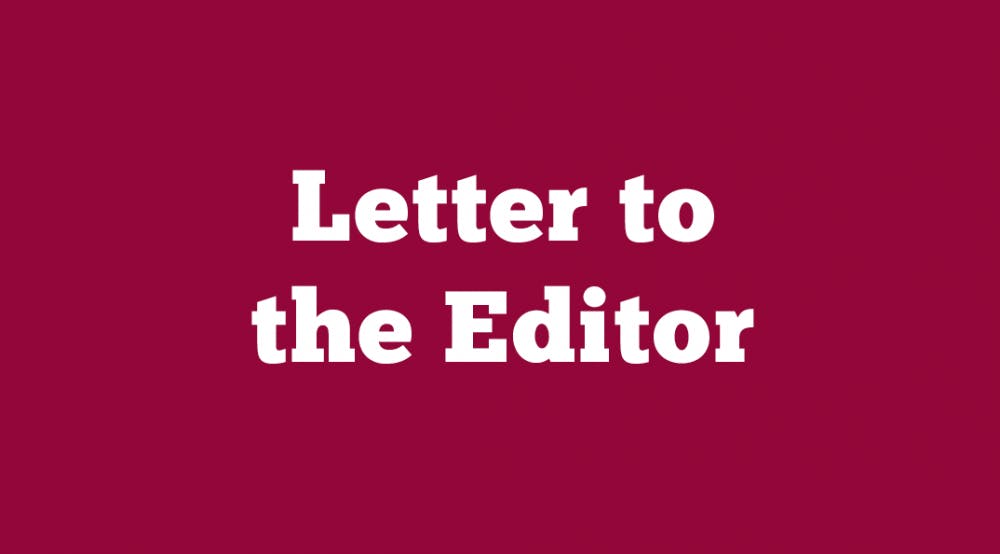Letter to the Editor: Hold advisers accountable to keep you on track for graduation, unless you enjoy paying more out of pocket
When choosing where to go aftter high school, I knew all along that I was going to choose Central Michigan University. From the people, to the campus size and the quality of education I have received, I don’t regret my decision.
However, in my ninth and final semester here at CMU, there was definitely one thing that kept me up at night: advising.
I never thought I would be enrolled in college for more than four years, but here I am —
finding myself thankful that I was able to graduate in less than five. Unfortunately for me and many of my peers, our advisers have let things slip through the cracks, letting us take classes that we don’t need.
But their mistakes have cost us thousands of dollars.
I am one of the many students that receive financial assistance and take out student loans. I’ve always considered frugality to be one of my strong suits, so when my academic adviser approved of three classes I didn’t need I felt betrayed and stupid.
That mistake cost me $4,700 in student loans and $2,200 in rent for my final semester — money that otherwise didn't need to be spent.
I began meeting with my academic adviser my sophomore year once I signed my major. I did so not because faculty urged me to, not because CM Life told me to, not because my parents told me to — because I was fortunate enough to have been friends with older students that shared their horror stories of waiting to meet with their adviser.
This leads me to my next question: how was I even allowed to register for classes that I didn’t need? CMU students are expected to treat the Academic Bulletin as their Bible, so to speak. When the bulletin is constantly changing, it’s very difficult to keep track of which classes count and which don’t.
This isn't a new problem.
After doing some research, it appears CMU advising has been an issue for more than a decade, if not longer. In an MLive article published in July 2014, some alarming statistics jumped out at me: “Only 20.6 percent of new freshman graduate within four years and 48 percent graduate within five years, according to the CMU Office of Institutional Research.”
Another alarming fact stated in the article was that CMU students graduate with some of the highest student debt rates in Michigan public universities — with an average of more than $31,000 for 2012 grads — a number surpassing student debt costs from the University of Michigan and Michigan State University.
This is clearly not a new or uncommon concern among students, alumni and faculty. In a past CM Life Letter to the Editor, Art and Design professor Al Wildey addressed his concerns about the university’s advising after reading an editorial published Oct. 18 titled “Don’t Let CMU Overwhelm You” that offered tips to students on how to be on top of their class scheduling.
Wildey noted that in 2011, CMU’s Office of Information Technology and Registrar Office collaborated in order to improve the advising system by establishing a degree audit system that would make transcripts and degree progress available to students and advisers in real time, which was built on Systems, Applications and Products in data processing (SAP).
He proposed switching from CMU’s current Advising Admin program to a more functional one called Banner — a program that he and his students utilized while he taught at the University of Idaho, which would adhere to CMU’s 2017-2022 Strategic Plan in respects to time and finances. Our current advising isn’t really helping anyone, including the advisers.
I feel as though adapting to Banner will take the stress and burden out of making time to schedule advising appointments. The program helps students receive their financial aid faster and only allows them to register for classes they need.
Academic advising meetings need to be seen as a key component in academic success just as much as studying and attending class. The Banner system requires meetings and approvals before students can register for classes, which is something I think CMU students and faculty would greatly benefit from. I know advisers don’t make mistakes on purpose, so why not adapt to a new software that would make their jobs easier too?
In the words of Al Wildey, “We can do better. For the sake of our students, we must do better.”
KAITLIN HORN
Rogers City, 2017 alumna







